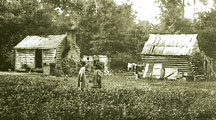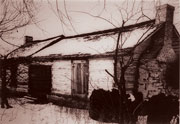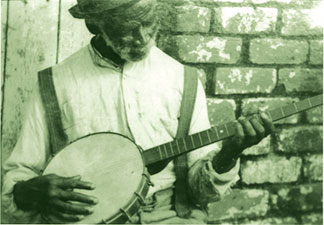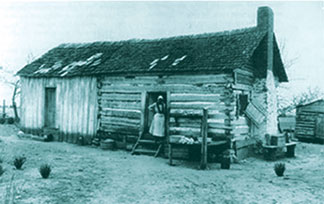

‘I WAS A SLAVE’: Plantation Life
Plantation Life
Compiled by Donna Wyant Howell
Part One of a Four Part Series
In the 1930s, thousands of formerly enslaved African-American elders dictated their full life stories during interviews conducted by the US government. The following is the translation of their words from southern dialect into standardized English. Their original words are published in “I WAS A SLAVE,” a series of books.
It is very important to remember that each owner created his or her own rules for governing their slaves. Therefore, the interviews provide accounts of vastly different experiences during similar circumstances.
Susan Forrest: There was the Big House where the master lived. Behind that house was a row of about fifteen or twenty cabins on one side and another row of 15 or 20 cabins on the other side.
Lewis Jones: Each log cabin had a dirt floor and a hole in the wall for a window without glass. We slept on bunks with straw mattresses.
Louis Fowler: They were built of logs, chinked with pieces of wood, and daubed with dirt to fill the cracks. The dirt was soaked with water until it stuck together. We also mixed hay or straw with it.
Richard Carruthers: The log cabins often burned down. The chimney would catch fire because it was made out of sticks and clay and moss. Frequently, we had to get up at midnight and push the chimney away from the house to keep the house from burning.
The food was rationed to individual families or was shared in the communal eating shed.
Florence Napier: All of us had plenty to eat. Master used to say that the colored folks raised the food and they were entitled to all that they wanted.”
William Moore: Master Tom didn’t feel obligated to feed his slaves very much. I remember that I had a craving for food all of the time. I’d take lunches to the field hands and they’d say that there wasn’t enough food to stop the pain in their bellies.
Lewis Jones: Master Tate didn’t ration the food to each family like many other masters did. He had a cookhouse and cooks … and all of us sat at long tables to eat our meals. Yes, sir, we had plenty of good food.
Betty Powers: Every family did its own cooking. Mammy, pappy, and their twelve children lived in our cabin, so Mammy had to cook for fourteen people and also do her fieldwork. All of the food was measured out on Sunday morning… but it wasn’t enough for the heavy eaters. The small quantities of food caused a lot of trouble because the slaves had to steal food. If they were caught, they were whipped with a bullwhip. The colored folks were in a bad situation. If they couldn’t do the work because they were weak, … they definitely would receive a whipping. If they stole food so that they could stay strong and can do the task, they would get a whipping. So, what were they to do? Most of them stole and took a whipping if they were caught, but they would have a full stomach. My folks didn’t have to steal food, but we were careful. You can be certain that nothing was wasted.





Be the first to comment